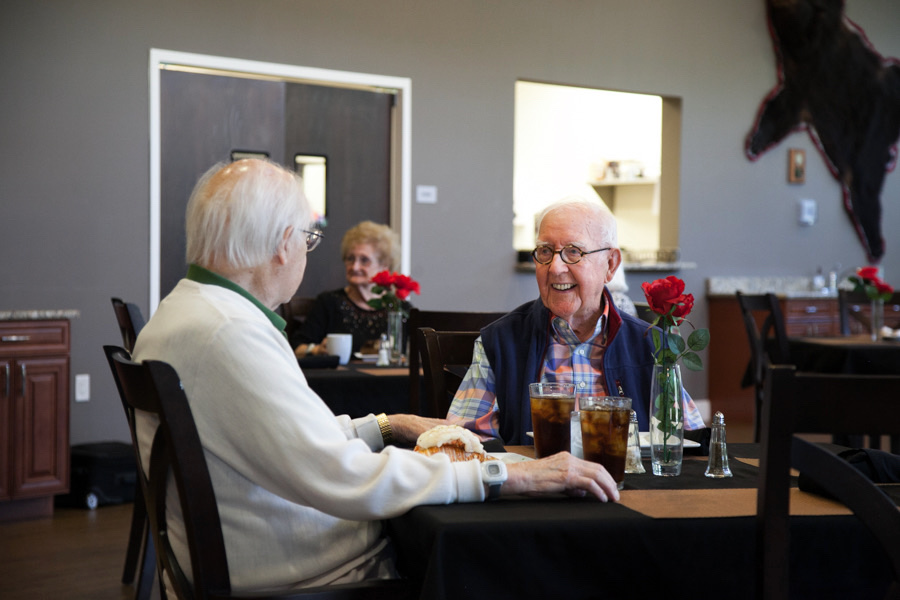As the baby boomer generation approaches retirement age, many people will be faced with making life choices for their loved ones, including how to handle their changing health needs and daily care requirements. We offer resources to help you make the right decision, including It’s important to consider all the benefits of assisted living if you choose to place these loved ones in a Tampa assisted living facility. Often these benefits can occur at home, but when transportation, nutrition, and activities of daily living get difficult, you may want to consider assisted living.
Here are the top seven benefits of assisted living that you or your loved one will love.
1. Access to Physical Activities and Fitness Centers
Assisted living facilities offer many different opportunities for physical fitness, many of which family caregivers may not be able to provide at home. Most of these centers include the latest gym equipment, as well as personal trainers who understand the needs of seniors and group exercise classes.
2. A Safe Place to Live
In order to have a senior remain in their home, numerous modifications may need to be made in order to keep them safe as their physical health begins to deteriorate. Expenses will begin to quickly add up with new additions such as medical alert systems and hand railings becoming necessary. Assisted living facilities are designed to help seniors avoid accidents and falls, while promoting mobility and accessibility. They also provide rapid access to help if it is needed.
3. Supervised Nutrition
Seniors who live at home or alone may find it unappealing and difficult to cook a meal for one. It becomes incredibly challenging for caregivers to monitor whether or not their loved ones are receiving the nutrients that are vital to their overall health. In a New Tampa assisted living facility, residents are served meals that are as beneficially nutritious as they are delicious.
4. Daily Living Assistance
Tasks such as eating, dressing, and bathing may become incredibly difficult for seniors who stay at home. The burden of helping them may fall to family members, but in many cases they must call upon a home care aide. This becomes incredibly costly and a financial strain on family members. At its most basic level, the purpose of an assisted living facility is to provide seniors with assistance in these daily tasks so that they may continue to function as independently as possible.
5. Transportation and Housekeeping
The day-to-day responsibilities, such as cleaning the house and driving to appointments, often fall on caregivers to deal with. These responsibilities are relieved when the loved one is placed in an assisted living facility, as these communities normally offer housekeeping and transportation services on a daily basis.
6. Opportunities for Social Activity
Living at home may become incredibly isolating for a senior. Relationships are very difficult to manage when they are no longer working or as active in the community. In an assisted living facility, residents may easily socialize in common areas and through planned activities to ensure engagement.
7. Intellectual Stimulation
From book clubs to art classes, assisted living facilities offer many outlets for intellectual stimulation and creativity. This allows learning to continue through interesting and engaging activities.
For more information on our assisted living facility options and how we can accommodate those who may need assistance, call us at (877) 480-2244 and speak with one of our Senior Living Consultants.






